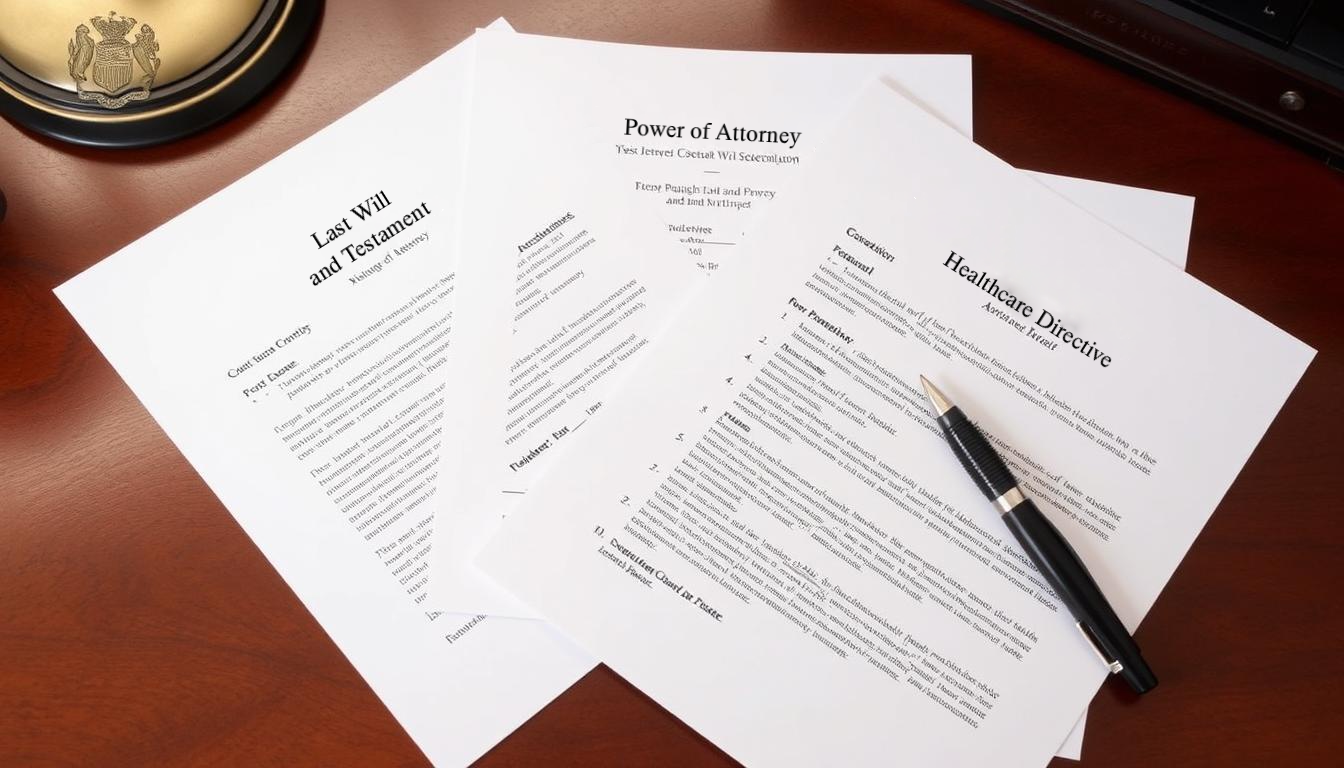- Contact Us Now: (201) 464-1011 Tap to Call
A Guide to Estate Planning in New Jersey: 4 Essential and 4 Optional Documents You Should Know About

Estate planning is a crucial step for New Jersey residents who want to protect their assets, provide for loved ones, and ensure their wishes are honored after they pass away. Without proper documentation, your estate could face lengthy probate proceedings, unnecessary taxes, and distribution according to state law rather than your preferences. This guide examines the essential estate planning documents in New Jersey and explains how each serves a distinct purpose within your comprehensive plan.
Essential Estate Planning Documents for New Jersey Residents
While estate planning can seem overwhelming, understanding the core documents needed in New Jersey will help you create a solid foundation. These essential documents form the backbone of any comprehensive estate plan.

1. Last Will and Testament
A last will and testament is the cornerstone of estate planning in New Jersey. This legal document allows you to specify how your assets should be distributed after your death. Without a valid will, New Jersey’s intestacy laws determine who receives your property, which may not align with your wishes.
Your will enables you to:
- Name an executor to manage your estate
- Designate guardians to care for your minor children
- Specify the beneficiaries who will inherit your assets
- Make specific bequests to individuals or charitable organizations
2. Durable Power of Attorney
A durable power of attorney is vital for financial management if you become incapacitated. This document allows you to appoint someone you trust (your “agent”) to handle financial and legal matters on your behalf. What your agent can do depends on the document, but common powers include:
- Paying bills and managing your bank accounts
- Filing your tax returns
- Managing your investments and real estate
- Handling your insurance and government benefits
It is usually important for your power of attorney document to remain effective even if you become mentally incapacitated, which ensures continuous management of your affairs without court intervention.
3. Instruction Directive (Living Will)
In New Jersey, an instruction directive, commonly referred to as a living will, is a legal document that allows you to put your healthcare wishes in writing. It is used when you are unable to make medical decisions for yourself due to illness, injury, or incapacity.
A living will can:
- State what types of medical treatment you want or do not want in serious situations
- Share your values, beliefs, and care preferences, so doctors and family members understand your wishes even in circumstances not specifically covered in your directive
- Ensure that your voice is respected when you are unable to speak for yourself
Living wills are important for several reasons, some of which are:
- Reduce family conflict by making your wishes clear
- Guide your doctors in providing care that aligns with your preferences
- Give you peace of mind knowing your healthcare decisions will be honored
4. Healthcare Proxy (Medical Power of Attorney)
While often confused with a living will, a healthcare proxy (or medical power of attorney) is a separate document that appoints someone to make medical decisions on your behalf when you cannot. This person, referred to as your healthcare representative, works closely with your medical team to ensure your wishes are honored.
Your healthcare representative can:
- Access your medical records
- Consult with your healthcare providers
- Authorize or refuse specific treatments
- Ensure that the instructions in your living will are followed.
In New Jersey, having both a living will and a healthcare proxy provides comprehensive protection for your medical wishes and preferences.
Some Optional, But Potentially Very Helpful, Estate Planning Documents
While the documents above form the foundation of your estate plan, several additional tools can provide enhanced protection and flexibility based on your specific needs and goals.
1. Revocable Living Trust
A revocable living trust can be a powerful addition to your estate plan, especially if you own significant assets or want to avoid probate. With this arrangement, you transfer assets to a trust while maintaining control during your lifetime.
The advantages of establishing a revocable living trust include avoiding probate court proceedings and maintaining privacy, since wills become part of the public record. It also ensures smooth management of your assets if you become incapacitated and may reduce estate taxes under certain circumstances.
2. HIPAA Authorization
Due to strict medical privacy laws, healthcare providers may be reluctant to share your medical information, even with close family members. A Health Insurance Portability and Accountability Act authorization (HIPAA) allows specified individuals to access your medical records.
This authorization complements your healthcare proxy and living will by ensuring that your chosen representatives have the necessary information. It also names the individuals authorized to receive it, specifies the types of information that can be disclosed, and can limit disclosure to certain time periods or conditions.
3. Final Disposition Authorization and Instructions
A final disposition authorization and instruction is a document that records your funeral and burial preferences. It provides your loved ones with guidance during a difficult time, and it helps ensure that your family understands your wishes and has direction when making final arrangements.
The authorization may include the following details:
- It designates the individual who will be responsible for carrying out your final disposition arrangements.
- It specifies your preferences for burial, cremation, or donation.
- It outlines the details of any desired services or ceremonies.
- It provides information about any prepaid arrangements already in place
If you do not have this document or have not outlined your final disposition agent or preferences in your will, N.J.S.A. 45:27-22 determines who has the legal authority to control this important process. It provides this hierarchy:
- Legal spouse, New Jersey registered domestic partner, or civil union partner
- Majority of surviving children over 18
- Surviving parent(s)
- Majority of surviving siblings over 18
- Other relatives, according to degree of relationship
- If no relatives are available, a funeral director may accept authorization from other interested parties (such as a friend or colleague).
4. Dementia Directive
A dementia directive is a type of healthcare directive and a relatively recent addition to estate planning documents. It addresses care preferences if you develop severe cognitive impairment. This document supplements your living will by providing guidance on your care for a condition that may last for years.
With a dementia directive:
- You can state your preferred living arrangements as your cognitive decline progresses.
- You can describe your treatment preferences for the different stages of dementia.
- You can highlight your comfort care priorities.
- You decide when comfort takes priority over life-extending treatments.
Securing Your Legacy with Proper Estate Planning in New Jersey
Creating a thorough estate plan is one of the most important steps you can take to protect your assets and ensure your loved ones’ well-being. For New Jersey residents, key documents include a last will and testament, durable power of attorney, living will, and healthcare proxy. Besides these core documents, a revocable living trust, HIPAA authorization, dementia directive, and final disposition instructions can offer additional advantages based on your situation.
Remember that estate planning is not a one-time event but an ongoing process that should be reviewed periodically, especially after major life changes. Working with a qualified New Jersey estate planning attorney ensures your documents comply with state laws and truly reflect your wishes.
Don’t leave your family’s future to chance. Our experienced estate planning attorneys in New Jersey can help you create a customized plan that protects your assets and ensures your wishes are honored. Contact us or call us at (201) 464-1011. We guide you through every step of the process, from drafting essential documents to addressing complex situations.
This article is provided for general legal information only. It does not constitute legal advice and should not be relied upon for your specific situation. No opinion expressed herein may be used to avoid tax penalties or to promote or market any transaction or matter discussed. Legal advice can only be obtained after a thorough review of the facts of your situation with an attorney licensed in your state. No attorney-client relationship is established by this communication.

